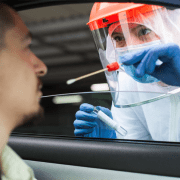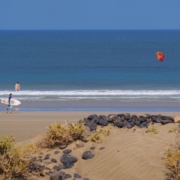The Director of Health Services on Lanzarote, José Luis Aparicio, has defended the 21-strong team of contact tracers on Lanzarote as “an example at the Canarian and national level,” after criticisms in the press.
La Voz de Lanzarote reported the recent case of a father who criticised “the lack of professionalism” of the tracing team after discovering that his 20-year-old daughter had spent Saturday on the beach with a friend, four days before the friend tested positive for Covid-19 on the following Wednesday.
The father claimed that the girl was not asked about potential close contacts until the Saturday, and even then, was only asked for those she had been in close contact with during the 48 hours previous to the positive test result.
Aparicio confirmed that the existing protocol in the case of patients with symptoms who test positive is to contact those who they have been in close contact with in the previous 48 hours. “Due to viral loads (the amount of virus in bodily fluids) and the associated risks of infection, we don’t go further back than that,” said Aparicio. In the case of asymptomatic patients, “We go back 72 hours, as it’s more difficult to establish the viral loads.”
Aparicio continued: “It’s true that people who are frightened would prefer us to carry out tests on everybody, but it’s not a matter of acting based on fear, but instead on technical grounds.”
Nevertheless, the 48-hour protocol has also been criticised by Antonio Becerra, representative of the CEMSATSE nursing union at Arrecife’s Dr Jose Molina Orosa Hospital. Becerra said health workers were suffering from a “lack of protection” after two health workers recently tested positive, and specifically blamed the 48-hour cut-off limit on tracing.
“We know that a week can pass before someone shows symptoms,” said Becerra. “Therefore, someone who was in contact with a positive case just a few hours before the 48-hour limit could have been living with somebody who has been infected for five days.” Becerra claimed that some health workers had paid for tests at private clinics to put their minds at rest.
The protocols have been established by Spain’s Ministry of Health and adopted by each of Spain’s regional health services. A report by RTVE last month claimed that Canarian tracing teams were the most efficient in Spain, although that description was made before the recent increase in cases on the islands.









